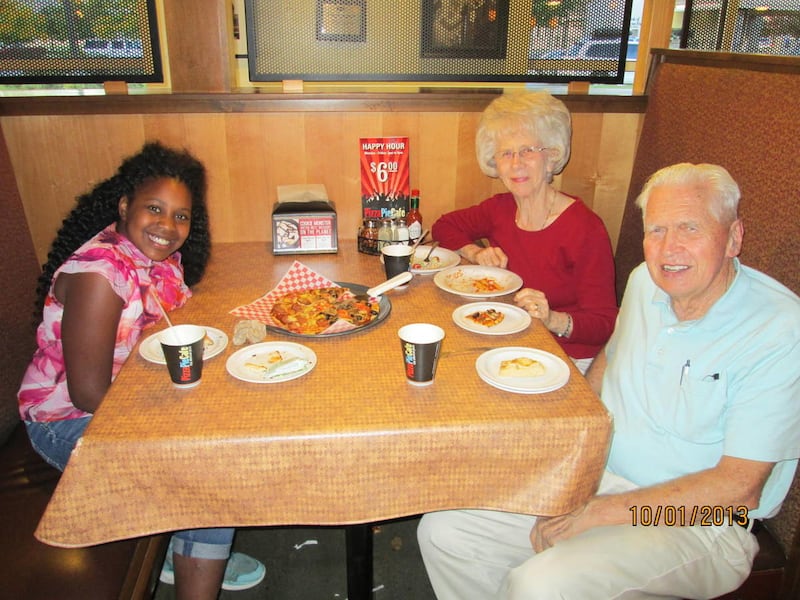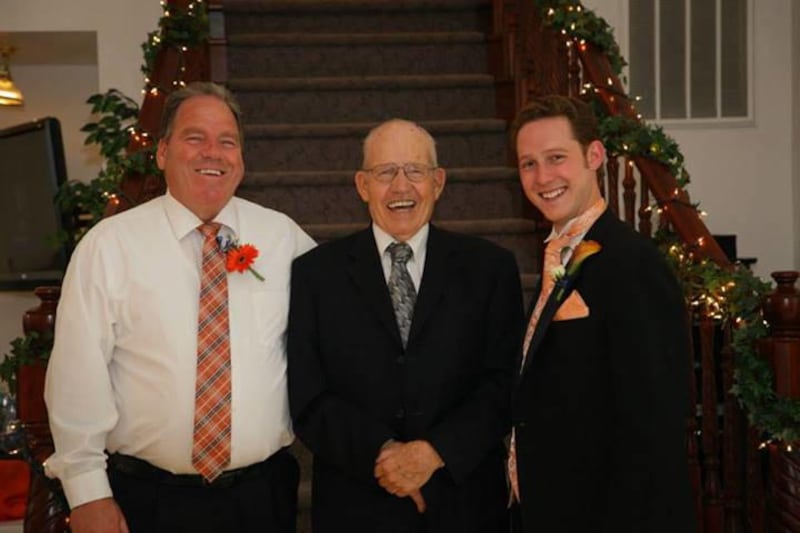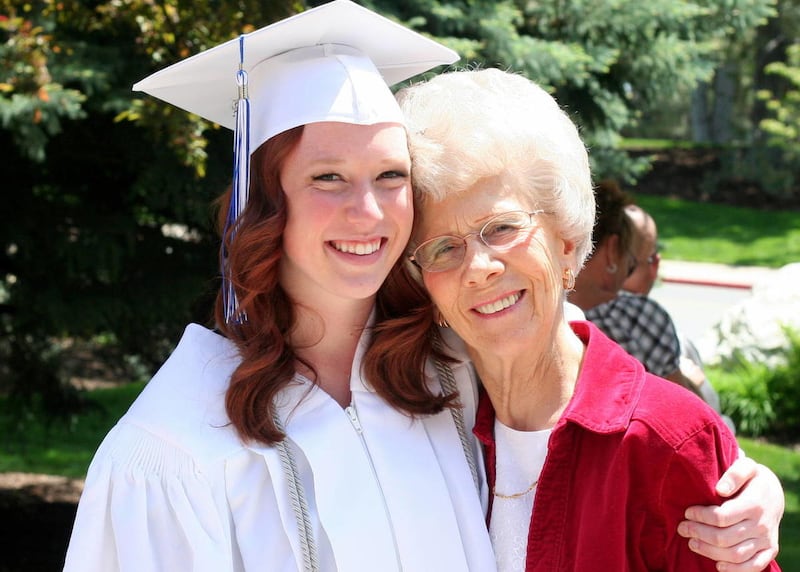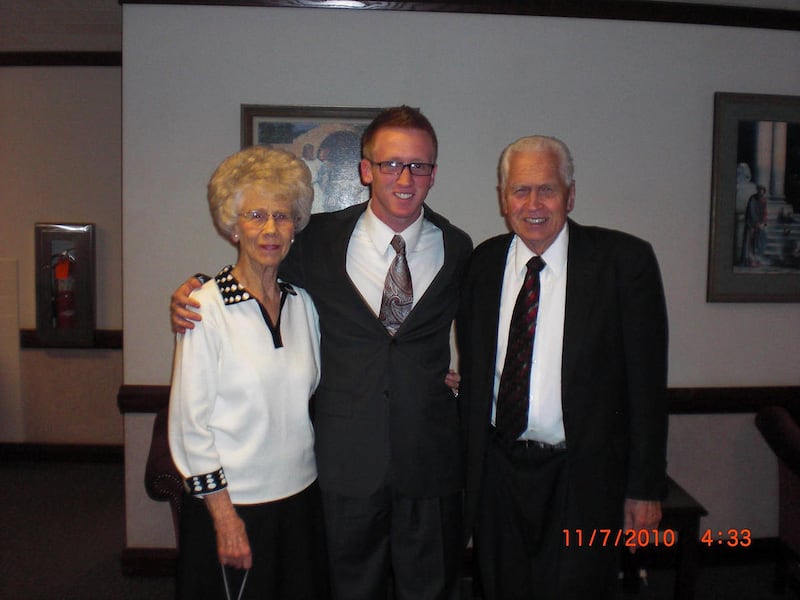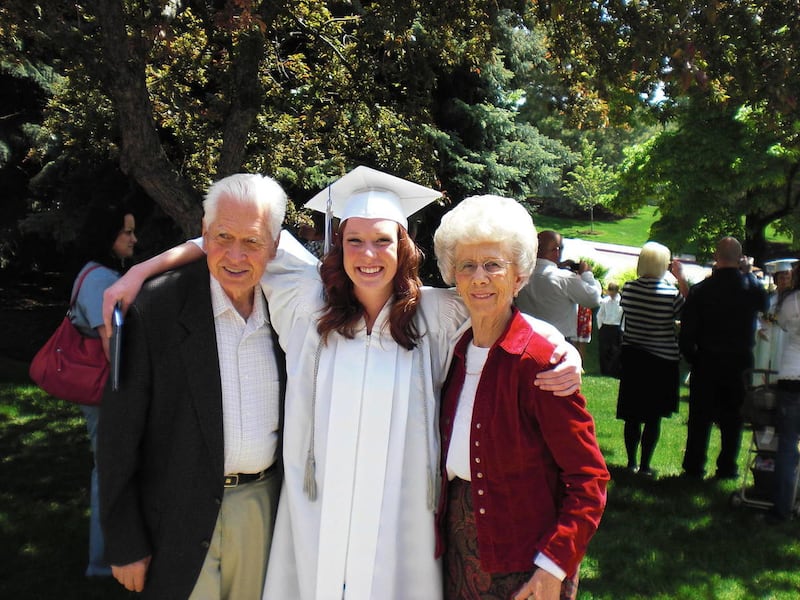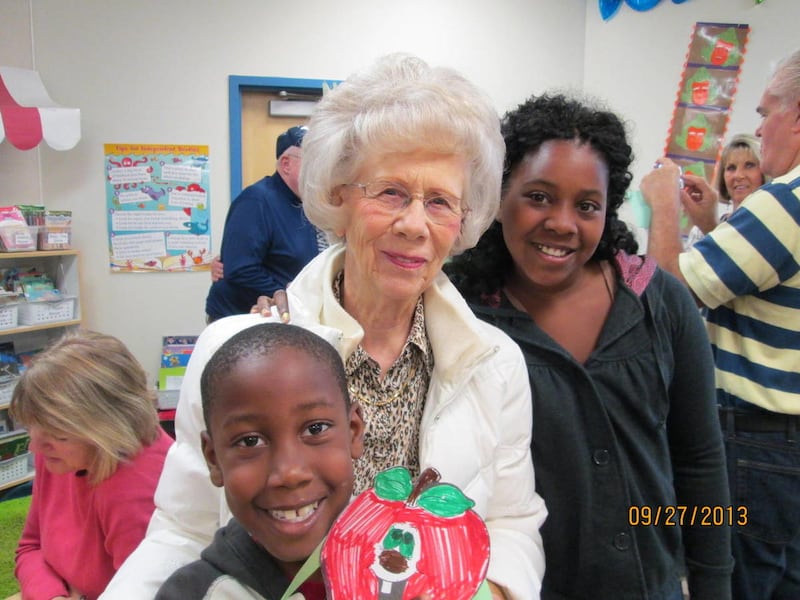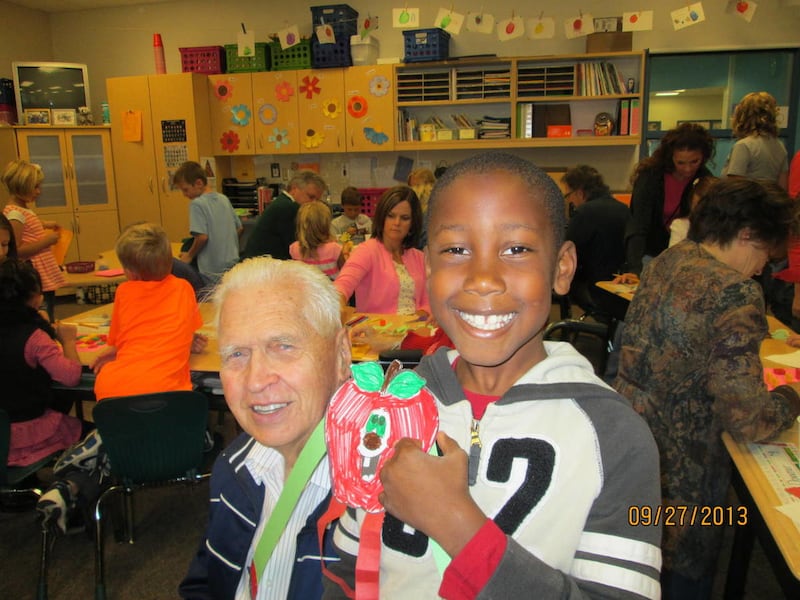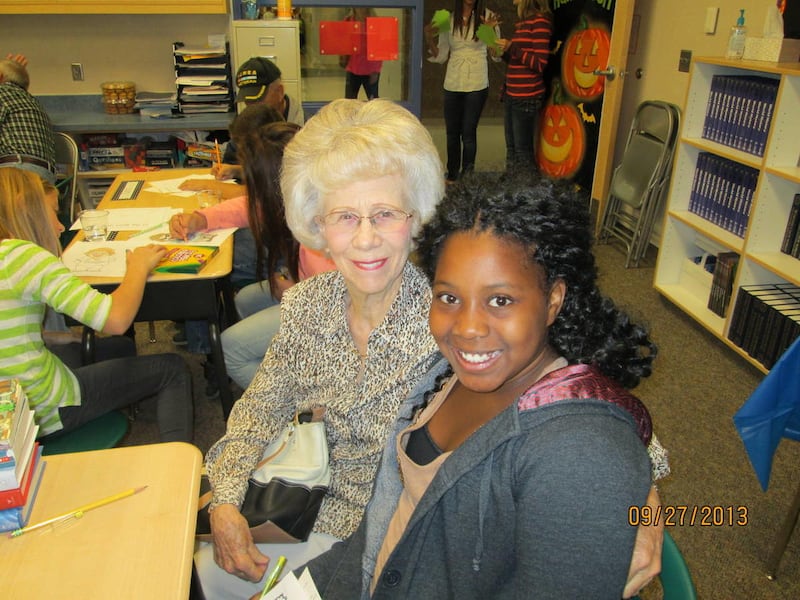I often find myself enjoying the more mature conversation that I can have with them. It can be about life and experiences, not just complaints about the latest fashion trend or episode of reality television. There is a far greater depth and value to such conversations. – Matt Fellows
HIGHLAND — No one's quite sure when the youngest Anderson kids started calling their elderly neighbors and friends "Grandma" and "Grandpa."
What their parents, Jeff and Heather Anderson, are sure of is that Shawn, 8, and Olivia, 11, would have a less colorful life without the interactions they enjoy with people much older than themselves, from their neighbor "Grandma Margie" to their actual grandparents, Carl and Rosalin Anderson.
"I grew up without grandparents, so I am a little jealous of the relationship my kids have with their grandma and grandpa," Heather Anderson said. "I never had that kind of unconditional love."
She believes elderly friends give her children that love without being judgmental. And the children give back "joy, youthfulness, happiness."
Anderson's older children, Mitchell and Alex, now adults, grew up close to her husband's folks, who offered their perspective and experience when needed. Sometimes, the distance of an extra generation was just enough to let everyone see things a bit differently.
The U.S. Administration on Aging says that by 2030, one in every five residents will be 65 or older. While many note the extra burden on society in terms of health care and retirement costs, sociologists and psychologists are among those who say there's an upside as well, found in the rich interactions possible between young people and old. Many positives come from young and old learning from, loving and encouraging each other, they say.
"I didn't have a lot of old people in my life," Anderson said. "I don't know what it's like to have a grandma or grandpa. I missed having someone just loving me because they loved me."
Someone to admire
Karen Wrolson is so convinced kids and old people need one another that when she worked with teens in danger of dropping out of school in La Crosse, Wis., she took them to a local veterans' hospital to interview the elderly vets and create bonds.
Kids need to know "that there are real heroes in the world — not basketball players or drug dealers, but real heroes," Wrolson said. "I also wanted the old people to realize that behind the saggy pants and blue hair, there are also real people, and they don't need to be afraid."
That's not to say that all grandparents are loving — or old, for that matter — or that all relationships with the elderly are great, Wrolson and others interviewed for this story noted. But a good relationship with old people gives something to youths they will not find elsewhere.
Because the old and young in her program met as strangers, it was initially awkward, she said, with both sides intimidated. They warmed to one another quickly. Young and old tend to be drawn to each other.
Wrolson was a troubled teen and dropout herself, though she eventually got back on track and now holds two master's degrees. She's a life coach in Camarillo, Calif., and still works often with teens.
Her children were raised without loving grandparents nearby. "I kind of forced them to be around old people in different ways," she said, from taking them trick-or-treating at a nursing home to recruiting older friends into her kids' lives.
Old age, she said, is like looking down from atop a mountain. "Now you're at the top and can see things much more clearly." That's especially helpful to teens who need guidance but won't always listen to their parents.
"Old people need, I believe, a purpose and to feel that somebody needs them, that they can make a difference," Wrolson said. Kids and teens get hope from seeing longevity and hearing about victories, adventures and even scrapes. The old get hope, too. "It alleviates some of their worries about where this world is going," Wrolson said. "It's not in jeopardy as much as they think if they never connect with the younger generation."
Not alone
Stephanie Mihalas' list of benefits to children from knowing old people includes a sense of belonging, hope, feelings of security, something to look forward to and a feeling of being part of the "pack." A psychologist and a clinical professor at UCLA, she's worked with both intact and dysfunctional family relations.
"I think that old people carry a lot of knowledge and wisdom that are different than their peers' and can transmit it to young children," Mihalas said. "They have a sense of history that can be transmitted — and a sense of intrigue about the world and history that excites children intellectually. Older people are also oftentimes very grounded in a chaotic world where peers are often judgmental. Old people can provide a sense of stability that everything is going to be OK. With time, with confidence, one can move through difficult situations. A teen can look at older persons and see that, in fact, their life is OK."
She believes that "lots of very deep mentoring relationships are fostered with older people. You can rely on and trust them." And kids bring vibrancy to old friends. "The benefit is mutual." She's seen old people who were losing hope about their lives but had it rekindled by youthful relationships.
Mihalas said more is known about the benefit to teens than to young kids, but no one doubts that the reach across generations at the very least "feels deep and healthy and securing," she said. Children who don't have old people around naturally may be drawn to seek them out, from volunteering somewhere with old people to hanging out with peers' grandparents. "You hear a bit of a sense of loss with some teenagers who say they never had a grandparent, don't know what it's like. They're not sure what they're missing, but they know it's something."
Intergenerational relationships are a great way for children to get a sense of history, context and perspective, said Jennifer Chung, parenting expert, mom and co-founder of Kinsights.com, an online mentoring and advice portal. "I've seen family friends help teenagers through a rough time at school, grandparents give insightful friendship and advice, and uncles get their nieces and nephews to try a new activity," she said.
Who am I?
Kids need older people in their lives to complete full self-identification, said Dr. Fran Walfish, a family psychotherapist in Beverly Hills, Calif., and author of "The Self-Aware Parent." They round out young people's understanding of "who I am," providing both continuity and longevity. In a good relationship, an old person can also meet a child's need for someone to idealize and to want to be like. That wide-eyed acceptance and affection is also enormously valuable to the elderly, she noted. "Feeling worthy — having something of meaning to contribute, everyone wants to have that."
Salt Lake City's Clark Burbidge has thought a lot about heroes — the subject of his Giants of the Land trilogy and fodder for discussions at area schools. Anyone can be a "giant," large in heart and passion and influence, but often they are older people, such as grandparents, who change and uplift and show the power of perseverance.
Burbidge's grandparents weren't the rulemakers in his life, so he could bounce ideas off of them and ask them questions about things that might be a little uncomfortable talking about with his parents. "Not all older people can do that," he said. "You have to find the right ones."
Now he is the grandparent, enjoying "the opportunity to interact and engage and maybe make a little bit of difference," he said.
Not having grandparents doesn't mean children can't have caring older people in their lives, Burbidge said. They need someone who will listen and care and make time for them. "For young people and also for us older people, the world is full of messages that tell us we don't have value, we're invisible, we're a speck of sand on the seashore. The result is 'why try?' thinking. Why not check out and game 24/7 or do some other distracted thing? I think those are things older individuals can teach."
Joyful connections
One of Matt Fellows' favorite photos was taken at his wedding last summer. Three joyful, jolly Fellowses stand side by side: his dad, Archie D.; his granddad, Archie L.; and Matt, officially Archie M.
For much of his life, his best friends were older people, including his beloved grandpa, who died recently, said Fellows, 26, of Taylorsville. He credits older friends and mentors for helping him avoid "many painful experiences in my life."
"I often find myself enjoying the more mature conversation that I can have with them. It can be about life and experiences, not just complaints about the latest fashion trend or episode of reality television. There is a far greater depth and value to such conversations," he said.
"I very highly encourage parents to allow their children the mentorship that can come from the older generations. Many times, kids do things only because Mom and Dad said to not do them. However, if that lesson comes from a source that is seen as a friend and not as a parent, they often are more apt to listen to it."
As a self-described "stubborn teenager," Fellows didn't always take parental messages to heart, but his older friends reinforced what his parents taught him and shared their own experiences.
He tells kids to record the elderly friends they have. The senior Archie Fellows, who was 81 when he died, was full of surprising stories, from work to family to war. He was a good boxer in his day. "Never in my life," Fellows said, "would I have thought that this frail, arthritic man was a boxer."
Email: lois@deseretnews.com, Twitter: Loisco


